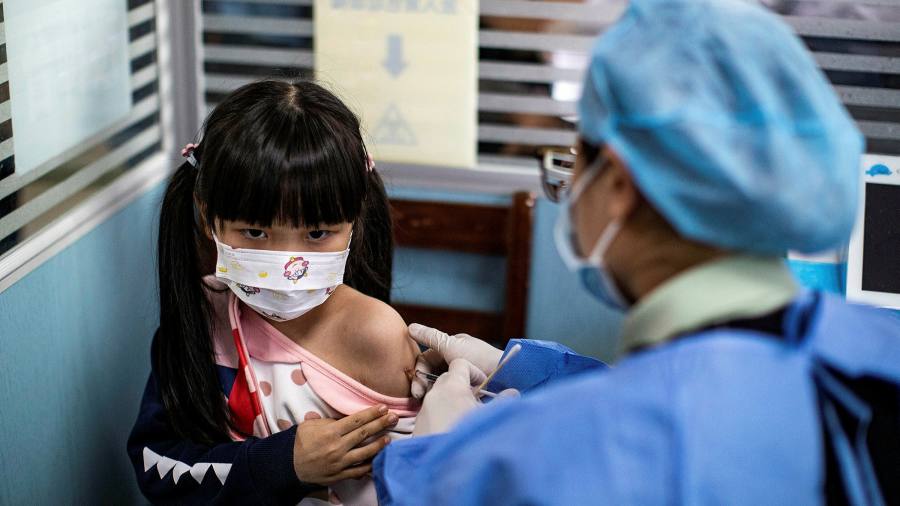One of China’s top pandemic advisers has said Beijing’s strict Covid-zero strategy would prevent the new Omicron variant posing a serious threat, vindicating the tough policy at a time when the rest of the world has been trying to ease restrictions.
The comments, reported in Chinese media, came as authorities published a study by local academics warning that any attempt by China to deviate from the elimination strategy by following western herd immunity models would be “disastrous”.
“China’s current rapid response . . . strategy can cope with various types of Covid variants,” Zhang Wenhong, an infectious disease expert and director of the Huashan Hospital’s department of infectious diseases in Shanghai, said on Weibo: “I don’t think it will have a big impact on China at the moment.”
Beijing has adopted a tough Covid-zero strategy that involves subjecting vast numbers of people to compulsory government quarantine, with wide definitions of those considered a close contact.
While effective at preventing deaths, it has left the nation isolated from the rest of the world. Most other countries in the region that had also pursued elimination strategies are moving towards an acceptance of the disease as endemic.
But Zhang said the strategy had won China a “strategic opportunity” as the arrival of the new variant forced other countries to begin reimposing restrictions.
Zhong Nanshan, another top Chinese pandemic expert, said authorities would need to pay attention to visitor arrivals from Africa, but did not suggest any further government measures to tackle the new variant.
“How harmful it is, how fast it will spread, whether it will make the disease more serious . . . it is too early to draw a conclusion,” Zhong said at the weekend, according to Chinese media reports.
In the study, Chinese mathematicians warned that moving away from China’s strict Covid-zero approach to one similar to the US could lead to as many as 637,155 new cases daily, which would have a “devastating impact on the medical system of China and cause a great disaster within the nation”.
“The estimates revealed the real possibility of a colossal outbreak which would almost certainly induce an unaffordable burden to the medical system,” the authors wrote.
The warning was contained in a study by Yuan Zhang, Chong You, Xin Gai and Xiaohua Zhou published on November 24 by China’s Centre for Disease Control and Prevention.
“Our findings have raised a clear warning that, for the time being, we are not ready to embrace ‘open-up’ strategies resting solely on the hypothesis of herd immunity induced by vaccination advocated by certain western countries,” the authors said.
But they said they did not account for any difference in effectiveness of the vaccines between those offered in the west and China.
China’s population has mostly been inoculated with more traditional “inactivated” vaccines made by the state-owned Sinopharm and domestic pharmaceutical company, Sinovac Biotech. Some experts say there are doubts as to whether these more traditional type of vaccines offer as long-lasting protection as those based on newer mRNA technology.
Zhong said that about 76.8 per cent of the nation’s population was vaccinated, with 80 per cent targeted by year end.
Sinovac, which has developed and delivered millions of its shots worldwide, said it was working to obtain samples of the new variant to test the effectiveness of its shot against the strain. China is also developing its own homegrown mRNA shots.







More Stories
Business Tips for Beginners: Navigating Success in Your Ventures
Navigating Technical Support: Tips for Streamlining Operations
Five Tips to Selecting the Right Security Camera Monitoring Services